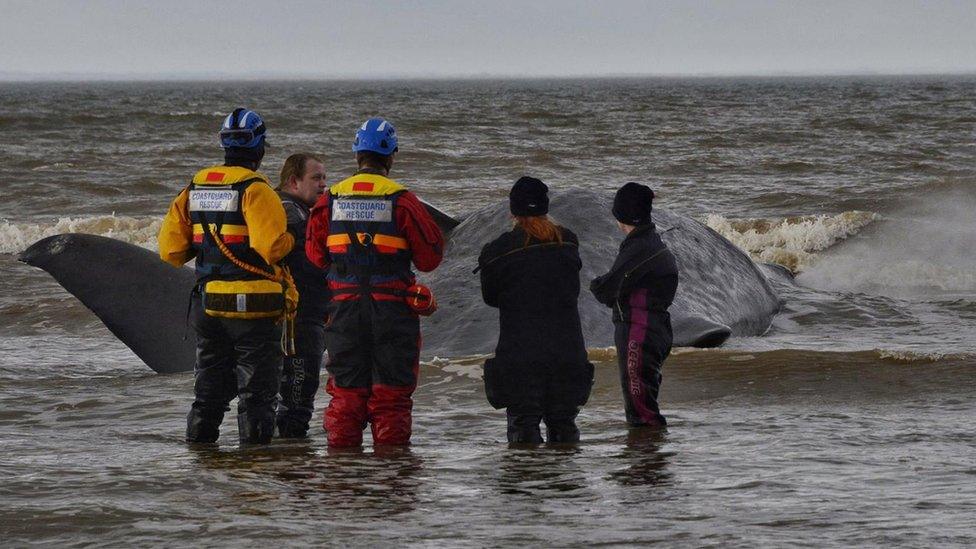Whale deaths: 'Squid find' identified as minke whale
- Published
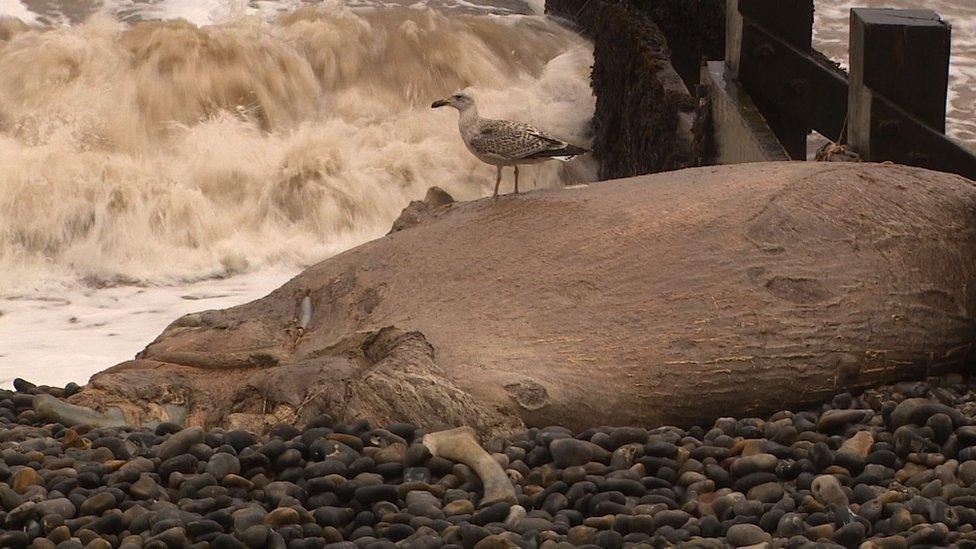
The remains of a minke whale first washed up at Salthouse in January, before being washed down the coast to nearby Weybourne
A carcass initially believed to be a giant squid and a "significant" find in explaining the deaths of sperm whales has been identified as a minke whale.
It was found at Weybourne in Norfolk on Tuesday and is now known to be a whale which washed up almost a month ago.
Norfolk cetacean recorder Carl Chapman said a species of giant squid could have matched its description.
"The theory that [sperm] whales were chasing squid remains valid," he said, although there was no evidence as yet.
"When we heard it might be a giant squid, we thought this could be significant."
He said: "I think at the moment people are very aware of the whale sightings and we are receiving a lot of reports which come to nothing."
Carcass of minke whale washes up at Sheringham
The minke whale carcass was washed off the beach at high tide on Wednesday morning and found at Sheringham.
The false alarm came after a seventh whale was seen in trouble off the coast at Mundesley on Tuesday morning.
The coastguard launched a search but could find no further trace of the creature.
It is hoped the whale safely returned to deeper waters.
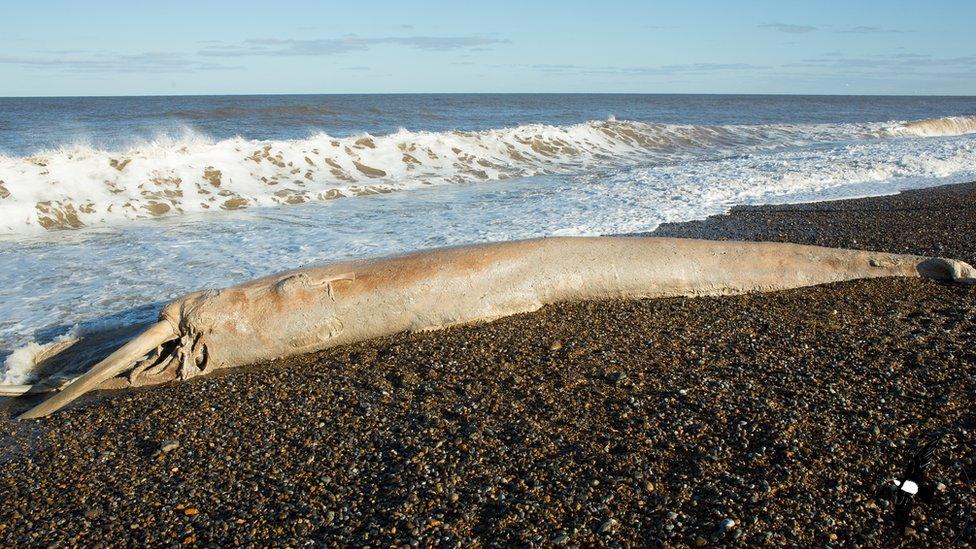
Norfolk Cetaceans photographed the minke whale in January and described it as "long dead" sub-adult measuring 8m (26ft) long
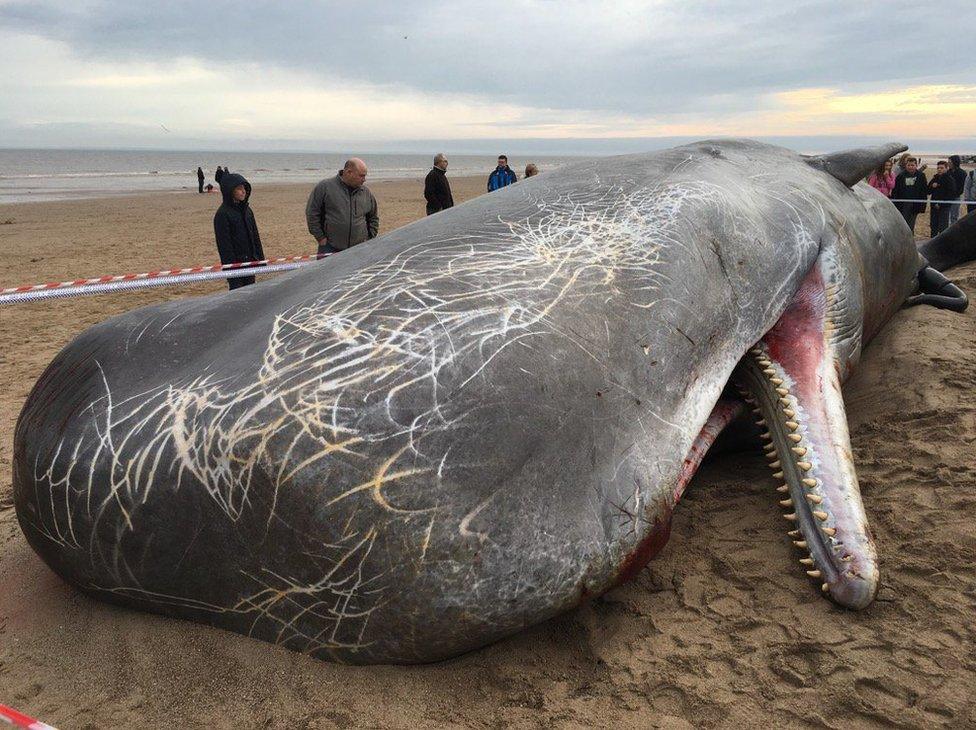
Six whales have died after washing up on beaches in Lincolnshire and Norfolk this year, including this one at Skegness
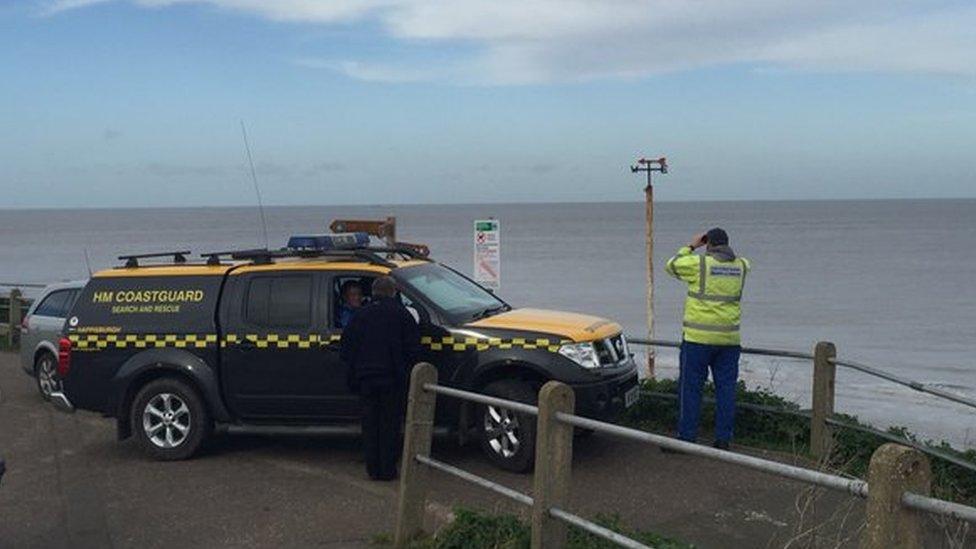
The coastguard had advised people to keep at a safe distance from the whale spotted in trouble off the coast at Mundesley
A sperm whale died at Hunstanton last week, the second to die there recently, and four others were found dead in Lincolnshire.
There have been 30 sperm whale deaths in the North Sea this year.
The Cetacean Strandings Investigation Programme, which examines all whale, dolphin and porpoise strandings in the UK, is working to establish why the whales came ashore and how they died.
This could help answer why the whales, thought to have come from the same bachelor pod normally living off the west coast of Norway, were in the North Sea.
- Published9 February 2016

- Published8 February 2016
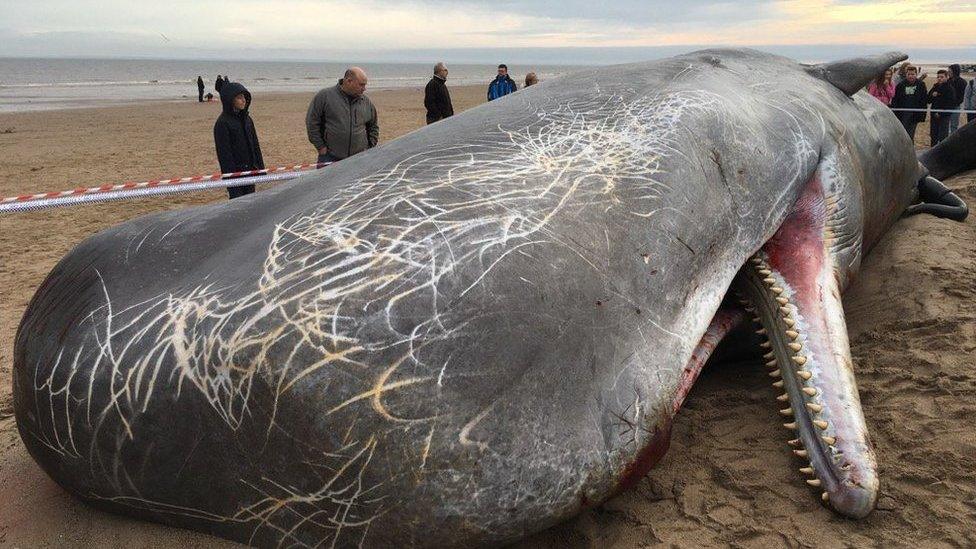
- Published4 February 2016
